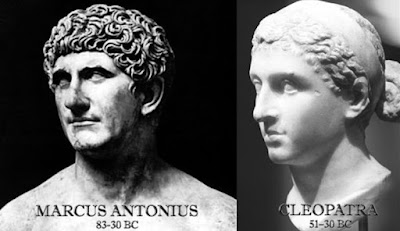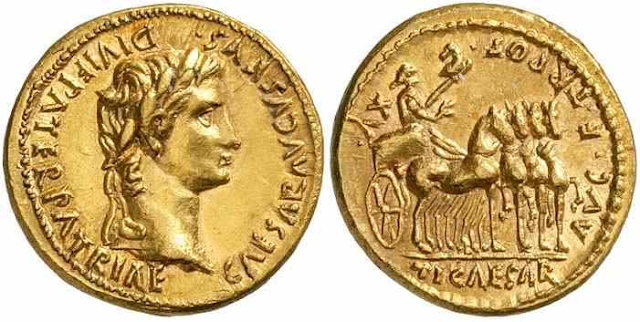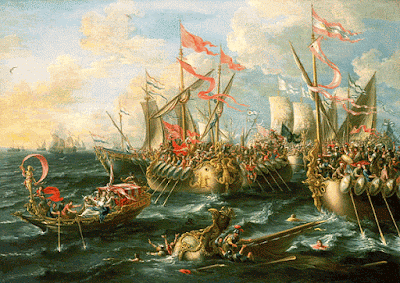 | Emperor Augustus, died on this day (August 20) in 14 AD of natural causes while visiting Nola. He was 75. He was the founder of the Roman Empire, and reigned as the first Roman emperor from 27 BC until his death. August is named in his honour. |
 | Antony and Cleopatra grew closer as Octavian worked to restore Italy. In 33 BC, the Second Triumvirate ended, leaving Antony with no legal authority. Octavian began a campaign against him, declaring war against Cleopatra. |  |
 This coin was minted in Rome, 13-14 AD. | Rome was officially transformed from a Republic to a Principate in January, 27 BCE. Octavian was crowned 'Augustus'. Over the next 40 years, Augustus shared his authority with the Senate. It would not be until Augustus’ coinage reform in 23 BCE that the gold aureus would come into standard use. In addition to his reorganization of the state and institutions of Rome, Augustus introduced a formal system of fixed ratios between denominations of coins. |




No comments:
Post a Comment